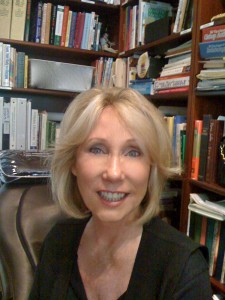Health & Fitness
OCTOBER IS BREAST CANCER AWARENESS MONTH
By Ruth Mansmith MS, RN, CRRN, RAC-C
Author, national speaker, wellness coach
Breast Cancer Is On The Rise
Did you know breast cancer is the second most common cancer diagnosed in women? One in nine U.S. women (who live to be 85) will develop breast cancer. One in 25 women will die of it. Did you also know the prevalence of breast cancer is growing? Ladies, we are going in the wrong direction. Checking regularly for the disease must be a part of our wellness program.
Preventive Screening
Breast cancer is treatable and often curable if treated early. That’s why scheduling (and keeping) your mammogram appointment is so important. A mammogram is a screening tool. The goal of screening exams, such as mammograms, is to find cancers before they start to cause symptoms.
Risk Factors
You are at high risk for breast cancer if you:
- Have a mother or sister who has had breast cancer
- Have never had children
- Began having children after the age of 30
- Did not breastfeed your children
- Are more that 40 percent over your ideal body weight
- Had a late menopause
- Drink 2-5 alcoholic drinks daily (see below)
- Use synthetic or bioidentical hormones (see below)
- Work the night shift (see below)
Alcohol Use
The American Cancer Society recommends that women limit their consumption of alcohol to no more than one drink a day “Use of alcohol is clearly linked to an increased risk of developing breast cancer. Those who have 2 to 5 drinks daily have about 1½ times the risk of women who drink no alcohol.”
Hormone Replacement Therapy HRT
The American Cancer Society is taking a strong stand against hormone replacement therapy. So, if you are considering this route, get the facts.
There are 2 main types of HRT.
- PHT. For women who still have a uterus (womb), doctors generally prescribe estrogen and progesterone (known as combined PHT).Use of combined PHT increases the risk of getting breast cancer. It may also increase the chances of dying from breast cancer. This increase in risk can be seen with as little as 2 years of use.
- ERT. The use of estrogen alone after menopause does not appear to increase the risk of developing breast cancer significantly, if at all. But when used long term (for more than 10 years), ERT has been found to increase the risk of ovarian and breast cancer in some studies.
Bioidentical Hormones
The American Cancer Society states, “The increased [cancer] risk of hormone replacement therapy is the same for “bioidentical” and “natural” hormones as it is for synthetic hormones.” There is much conflicting information out there. Many doctors claim bioidentical hormones are safe to use.
Get A Day Job
Several studies have suggested that women who work the night shift may have an increased risk of developing breast cancer. This is a fairly recent finding. Some researchers think the effect may be due to changes in levels of melatonin, a hormone whose production is affected by “the body’s exposure to light.”
Take The Initiative
Be pro active and follow the list of action steps you can start now:
ü Schedule your mammogram
ü Do a monthly breast self exam
ü Walk daily (Women’s health Initiative states: “as little as 1.25 to 2.5 hours per week of brisk walking reduced a woman’s risk by 18%.
ü Take fish oil supplements (as per Cancer Epidemiology, Biomarkers & Prevention) Two grams a day- read the label
ü Diet. Eat 5 or more servings of vegetables and fruits each day, choose whole grains and limit consumption of processed and red meats.
For more information:
National Cancer Institute www.nci.hih.gov
American Cancer Society www.cancer.org
Ruth Mansmith, a former CEO for a national chain of health-care facilities and author of the international award-winning “Fit For Life Wellness Program” offers wellness strategies for people of all ages. She has trained thousands of participants across the country on strategies to avoid disease and enjoy the fullness of life. Currently, she is completing her latest book,The Wellness Handbook and offering private wellness consultation. Ruth can be reached at (561) 352-4456 or visit www.wellnesshandbook.com.

